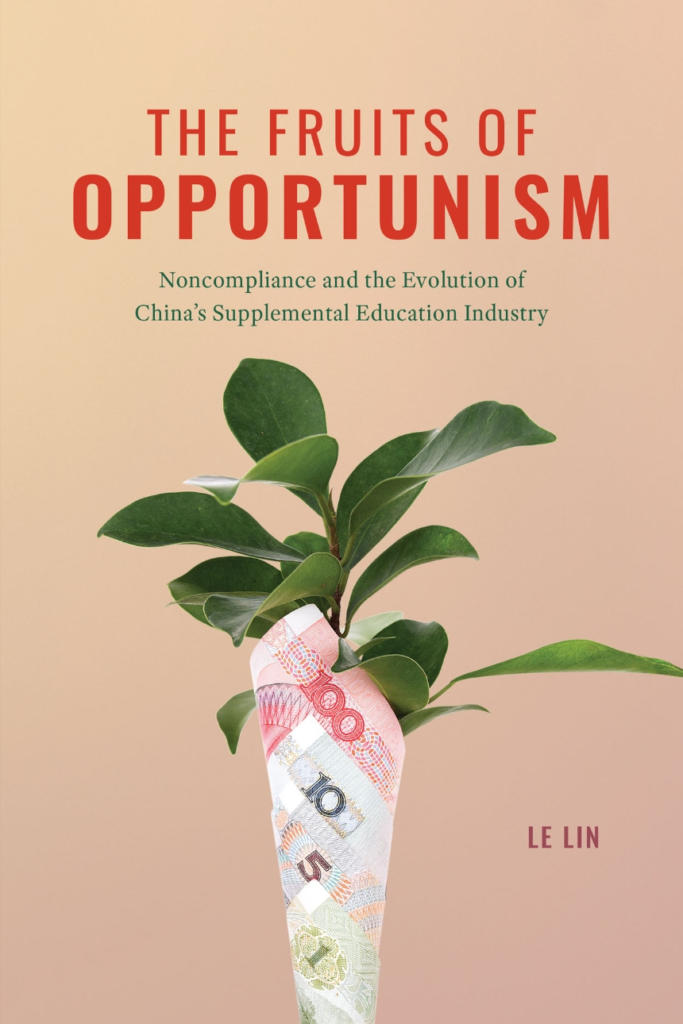
Supplemental education, such as test-preparation coaching and after-school tutoring, has become increasingly influential in determining educational outcome and social inequality. To date, most studies on supplemental education have focused on its impact on students and glossed over the supply-side story: how do supplemental education organizations (SEOs) operate and how do they transform in the context of major socioeconomic transitions?
In a recently published book, I examine the expansion and transformation of the world’s largest and most vibrant for-profit education industry—China’s supplemental education industry (the Industry) during the last four decades’ market transition. In the 1980s, all leading Chinese SEOs were nonprivate state-affiliated schools or small mom-and-pop ones stuck in dilapidated classrooms and informal practices.
How and why did they evolve into private and globally financed for-profit corporations, despite systematic restrictions by the Chinese state?
Drawing on in-depth interviews, internal archives, and participant observations on 28 leading SEOs, this book moves beyond existing state-centered and other macro-perspective explanations, putting the spotlight on opportunist organizations that defy formal regulations and various informal norms. The rise of opportunist organizations to market leadership and their persistent opportunism fostered a bottom-up privatization and marketization of the Industry.
Ambivalence and Ambiguity as Ambience
The expansion and transformation of the Industry took place against an ambivalent policy environment. Although the Chinese state began to welcome the establishment of SEOs by private citizens in the 1980s, the state imposed bans on private ownership, for-profit and financial operations as well as restrictions on the backgrounds of founders. In short, the Chinese state intended this Industry to be an extension of China’s state-led socialist education system, rather than a standalone industry.
Under such a policy environment, this Industry has been ambiguous for a long time: from the 1980s to the early 2000s, it was unclear whether SEOs were private and whether they were for-profit. On one hand, SEOs were registered as nonprivate and not-for-profit school entities. On the other hand, a large number of founders operated SEOs as their private businesses. SEOs are also inherently suitable for being operated as informal underground organizations.
In addition, the ambiguity deepened as the Industry thrived on the margins of the state education system and the informal economy. For example, a significant portion of earliest founders were faculty members of various state education organizations, and they brought in teachers, facilities and reputation of the state education system. Increasingly, however, socially marginalized entrepreneurs who were not qualified as founders according to government rules but had rich connections with people and resources in the informal underground economy evaded government rules and entered the market.
Opportunities for Opportunists
Under this ambiguity, two rounds of market reshuffling occurred.
The first one took place in the late 1980s and early 1990s. During this round of reshuffling, Opportunist SEOs that were founded by socially marginalized entrepreneurs replaced State SEOs as top market leaders. Before the late 1980s, State SEOs that were affiliated with elite state universities and schools were dominant with their renowned teachers, spacious classrooms and reputable names. In addition to Opportunist SEOs, another prototype of private enterprises was Intellectual SEOs. They were not affiliated with the state education system, but their founders were senior and often retired educators from state universities and schools.
So how did the first round of reshuffling happen? The key was the opportunistic practices and their effectiveness under ambiguity. Partly because socially marginalized founders had various accesses to the informal economy, their Opportunist SEOs adopted practices that were more noncompliant with state regulations than others. These practices included engaging in violent control of advertisement spaces, using fraudulent information for recruitment and resorting to pirated test materials. Compared to founders of other SEOs, founders of Opportunist SEOs were also more capable of fending off teachers’ opportunistic practices with opportunism.
Furthermore, the ambiguity of the Industry unintentionally turned state regulations that were implemented against opportunism into advantages for Opportunist SEOs. For example, new regulations that were used to contain opportunistic practices often fell on the more compliant State and Intellectual SEOs. As Opportunist SEOs outcompeted others and became market leaders, they promoted their opportunistic practices across the Industry, expanded the boundaries of market operations, and facilitated the retreat of the state. They pushed the privatization and marketization of the Industry.
Another round of reshuffling occurred in the 1990s. This was a period of competition within the group of Opportunist SEOs. While the more opportunistic outcompeted others in the previous round, less noncompliant Opportunist SEOs led by entrepreneurs more closely connected with the state education system gained the upper hand this time. Instead of putting their efforts in defying laws and regulations, these entrepreneurs focused on deviating from existing pedagogical norms. For example, Supernova School, the dominant brand in 1990s and 2000s in coaching TOEFL/GRE—two standardized tests in English for students interested in studying abroad, successfully transformed the teaching of TOEFL/GRE in China from teaching English to cramming test-cracking skills and then further to preaching motivational and nationalist stories. The noncompliance of Opportunist SEOs with existing norms produced novel practices.
The Persistence of Opportunism
Opportunist SEOs’ market leader status and their opportunistic practices persisted despite the institutionalization of the Industry after the early 2000s. Existing studies often claim that institutionalization of industries, such as formalization of managerial ladders and rationalization of practices, lead to the decline of opportunism. However, the lingering ambiguity of this Industry, the oscillation of state policies and some of the ill-devised equality-promoting policies contributed to the persistence of opportunism in this Industry. As SEOs became formalized and embarked on global financial market, old opportunistic practices came roaring back and new forms of opportunism were unlocked. As opportunistic practices evolve, the Industry becomes the world’s largest for-profit market dominated by private and globally financed SEOs.
Read more
Le Lin. The Fruits of Opportunism: Noncompliance and the Evolution of China’s Supplemental Education Industry. The University of Chicago Press 2022.

No Comments